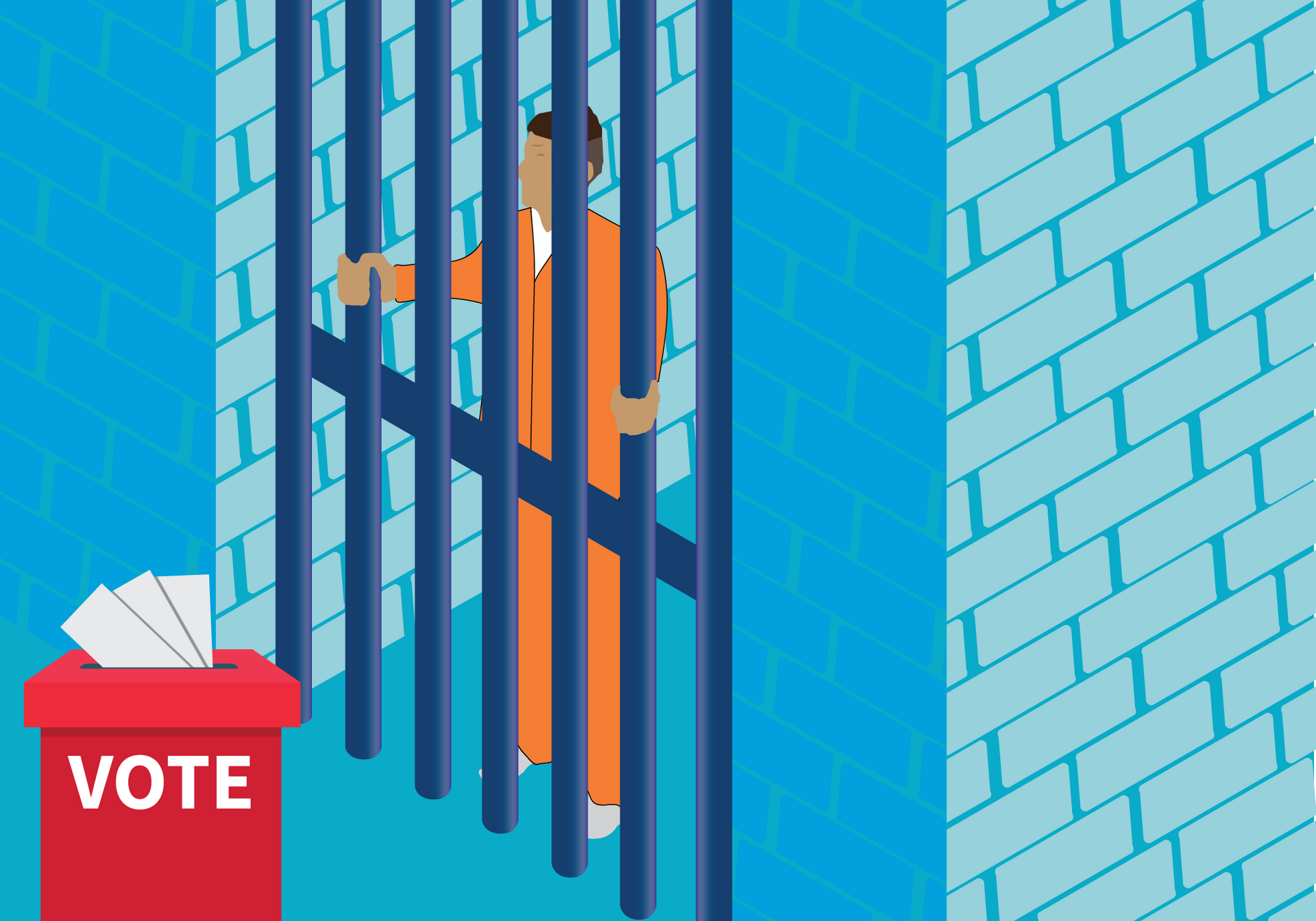Two Million Felony Disenfranchised People May Regain Right to Vote
Current litigation in five states seeks to end Jim Crow-era voter disenfranchisement

There are an estimated 4.6 million people barred from participating in the electoral process, according to the Sentencing Project’s 2022 report "Locked Out." These Americans, comprising 2% of the voting-age population, are often kept from exercising their fundamental right to vote due to post-Reconstruction-era laws that were implemented to maintain white supremacy in the lawmaking process.
This barrier, commonly referred to as felony disenfranchisement, is the denial of voting rights on the basis of a felony conviction. Most modern felony disenfranchisement laws originated in the time period after Reconstruction when post-Civil War constitutional amendments granted the right to vote to Black men. Southern states promoted felony disenfranchisement laws at the same time they were devising other tools such as poll taxes, literacy tests and grandfather clauses designed to prevent Black voters from accessing the ballot.
The long overdue reckoning with these racist laws has most often come through litigation as citizens fight to reclaim their right to the ballot box, but the fight for justice is multifaceted. Some lawsuits challenge the laws and rules that disenfranchise people with felony convictions, while others challenge the purposefully onerous, complicated processes by which people can regain their voting rights.
In Maine, Vermont, Washington, D.C. and Puerto Rico, all citizens can vote in prison, regardless of their conviction status. In the other 48 states, the laws range from restoring voting rights for all incarcerated individuals automatically after their prison sentence to permanently disenfranchising certain people for life, except if they seek a specific exemption.
Currently, there is ongoing litigation concerning the improvement of rights restoration and dismantling of felony disenfranchisement in five states:
- Florida disenfranchises nearly 13% of its voting-age population, equaling over 1,150,000 voters, and leads the country in the absolute number of disenfranchised citizens. One lawsuit is challenging the state’s rights restoration process, which was enacted by voters through a constitutional amendment in 2018.
- Mississippi disenfranchises more than 10% of its total voting-age population - over 239,000 people - and its disenfranchisement of Black voters exceeds 15%. One lawsuit is challenging the state constitution’s “cruel and unusual” felony disenfranchisement provision.
- In North Carolina, Black people constitute 21% of the voting age population in North Carolina and represent 42% of the people disenfranchised under the current law. One lawsuit is challenging the state’s rights restoration process.
- Tennessee has the second-largest disenfranchised population with more than 9% of its voting population kept out of the polling booth, over 470,000 people, and leads the country in the disenfranchisement of Black voters, which exceeds 15%. One lawsuit is challenging the state’s rights restoration process.
- In Virginia, over 5% of the state's voting-age population, over 312,000 people, is prevented from voting due to the state’s felony disenfranchisement law and rights restoration process. Two lawsuits are respectively challenging both restrictive regimes.
Arekia S. Bennett-Scott of Mississippi Votes, a non-profit devoted to encouraging civic engagement and educating Mississippi communities on voting rights through place-based grassroots organizing, argues that there is a “changing tide in public sentiment” as reflected in Mississippi last month when the U.S. 5th Circuit Court of Appeals struck down one of the state’s Jim Crow-era felony disenfranchisement constitutional provisions.
In a country that prides itself on democratic values and a government led by “we the people,” as of 2020, there are still 5.2 million Americans who are stripped of their voting rights. Efforts like those listed above seek to right the wrongs dating back to the post-Reconstruction era and bring us more aligned to the democracy we wish to be.










